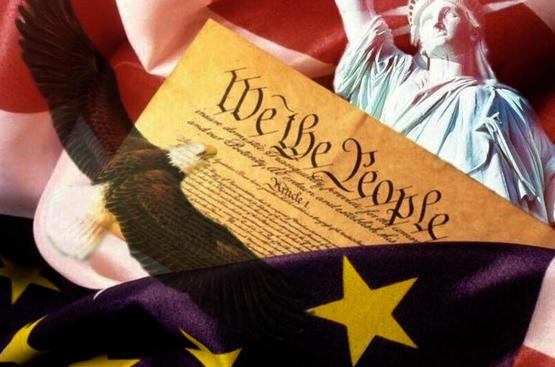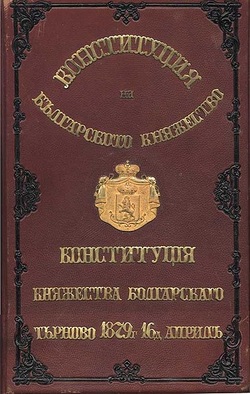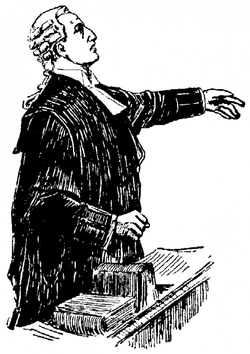Federalism and people's ability to govern themselves
By Martina D. Dimitrova,
Sofia University “St. Kliment Ohridski”, Faculty of Law
Federalism is a form of government in which a constitution, created by the people, allocates governmental powers between the national government and state governments. Hence, a double security arises to the rights of people. States would protect individual liberty against federal obtrusions as well as constitutional limits on state power would confine state encroachments on the rights of people[1]. Federal courts play significant role in enforcing these restrictions. Despite the diversion of the doctrine of dual sovereignty for a period of approximately fifty years, it is asserted that federalism presents several benefits – it protects people from tyranny, it enhances representation and stimulates policy innovation[2]. Nevertheless, federalism also has a number of disadvantages.
Pursuant to the US federal system, the Constitution recognizes a concurrent sovereignty between two levels of government – national and state. State governments have prescribed areas of jurisdiction that are independent of the central authority to a certain extent[3]. As for the dual sovereignty to protect liberty, it is of great significance that the Court continues to confine the powers of the federal government as they are envisaged in the Constitution. Supreme Court and federal courts’ judgments on the constitutionality of legislation define the scope within which Congress can act. However, in Jones & Laughlin Steel Co., United States v. Darby, and Wickard v. Filburn the Court rejected the doctrine of dual federalism as narrowly defining Congress’ competences[4] for nearly fifty years. Notwithstanding, the Court reverted to the conception of the limited powers of the federal government[5]. The Court stated in the Gregory v. Ashcroft that “the powers delegated by the proposed Constitution to the federal government are few and defined. Those which are to remain in the State governments are numerous and indefinite”. Furthermore, the Constitution does not allow Congress to commandeer the state governments to regulate or legislate. Thus, the diffusion of power safeguards liberty by excluding the unconstrained control of a single unit with unrestricted powers
Alexander Hamilton declared the merit of the federal system: “Power being almost always the rival of power, the general government will at all times stand ready to check the usurpations of the state governments, and these will have the same disposition towards the general government”[8]. For the protection of liberty, Hamilton expected that could be achieved by political pressure established by people’s opposition. Unlike Hamilton, Madison envisioned another method which includes keeping federal power within its constitutional bounds with the intervention of the Court which could enforce significant restrictions.
In addition, this concurrent government can better content a heterogeneous society. Federalism expands the opportunity for people’s participation in democratic processes. Political and administrative units at local levels are able to include people more directly and comprehensively in decision-making and planning processes. The more levels of government, the greater the opportunity to vote and hold office. State and local governments elect thousands of office holders. Many of these offices are training grounds for future national leadership. A large amount of people hold political offices in cities, towns and other districts. It promotes and helps to manage a healthy democratic pluralism within a large country.
Government decentralization promotes policy innovation because it allows for experiments by local governments[9]. Local governments are often considered as “laboratories of democracy”, introducing new approaches and testing and evaluating novel solutions. Innovative programs and policies from welfare and educational reform to health and safety regulation have come first from state governments. The United States is a geographically large and diversified country. Differences in national cultures (due to the numerous immigrants in the US) bring different cultural and moral values to social, economic, and political issues. Governing such a nation as a democracy allows States to adopt various policies that match its citizens’ preferences. Accordingly, should state governments broaden the spectrum of individual rights beyond those provided by the federal government, the extent of individual liberty would be increased, which would correspond to the purposes in a democratic country.
Another positive feature of the federal system is that “it makes government more responsive by putting States in competition for a mobile citizenry”[10]. On this basis, decentralized government enhances democracy by providing governance which is in close proximity to the public needs and concerns.
On the basis of the foregoing considerations, Hamilton’s assertion in The Federalist that this system shall suppress “the attempts of the government to establish tyranny” is confirmed. Should the federal government exceed its powers, the resulting oppression would be very intense[11]. Local governments provide a political platform for the opposition parties when they lose national elections and hence, the latter can continue to confront and criticize the party in power at national level.
Although federal system provides individuals with a lot of benefits worth considering, it is not exempt from flaws. Some argue that the United States does not manage to compose a uniform policy, in lieu of that it has a great number of polices, which sometimes raises confusion and incertitude. Further, if the federal and state governments are to control each other, uncertainty may arise for people to define which of the two governments to hold accountable for the omission or incompetent performance of a given function[12].
As it was pointed out above, federalism gives freedom for experimentations of various political approaches and implementing new ideas and methods. However, any federal legislation preempting state laws restricts this freedom, rather than enhance it.
Further, it is asserted that the incomes and costs of government can be spread unevenly. In addition, differences in policies are reason for inequalities. For instance, companies that operate in more states must obey various laws as well as to comply with the relevant restrictions.
Additionally, it is argued that citizens’ participation in political activities is not as unequivocal as it is claimed. Most of the people who take part in political processes are from the middle and upper classes, which isolate a certain groups of people that do not get into either of these categories[13].
In conclusion, achieving a proper balance in the tension between the federal government and the state governments makes this system effective and ensures double security to people’s rights. Thus, liberty can flourish. Furthermore, if one of the governments – national or state - fails to act, the other can search for solutions for dealing with the vast amount of social problems that can emerge. Therefore, federalism secures community. One of the virtues federalism has is related to the fact that it protects individual rights[14]. It has various advantages as public participation in the political sphere, achieving economic efficiency through competition between economics, encouraging experimentation at local level in the field of governance and so forth. Different people have different needs, so they govern themselves differently. That is why a single centralized regulatory system would not be adequate and applicable to every state. Nevertheless, as the other political conceptions the federal system is not a stranger to some negative fluctuations most of which could hardly be escaped.
[1]Adam C. Pritchard, Constitutional Federalism, Individual Liberty, and the Securities Litigation Uniform Standards Act of 1998, University of Michigan Law School, 2000, p. 441
[2] Robert A. Mikos, The Populist Safeguards Of Federalism, Ohio State Law Journal, 2007
[3] Edward L. Rubin, Malcolm Feeley; Federalism: Some Notes on a National Neurosis, 41 UCLA L. Rev. 903, 1994, p. 911
[4] Jones & Laughlin Steel Co.(301 U.S. 1 (1937); United States v. Darby (312 U.S. 100 (1941); Wickard v. Filburn (317 U.S. 111 (1942); Erwin Chemerinski, The Assumptions of Federalism, 58 Stanford Law Review1763-1791 (2006), p. 1766
[5] Gregory v. Ashcroft, 501 U.S. 452 (1991), para. 457, 458
[6] New York v. United States, 505 U.S. 144 (1992)
[7] Edward L. Rubin, Malcolm Feeley; Federalism: Some Notes on a National Neurosis, 41 UCLA L. Rev. 903, 1994, p. 928
[8] Alexander Hamilton, Jacob E. Cooke ed., The Federalist 28, 1961, at 178
[9] Koleman S. Strumpf, Does Government Decentralization Increase Policy Innovation?, Journal of Public Economic theory, p. 207
[10] Adam C. Pritchard, Constitutional Federalism, Individual Liberty, and the Securities Litigation Uniform Standards Act of 1998, University of Michigan Law School, 2000, p. 452
[11] A. Rapaczynski, From Sovereignty to Process: The Jurisprudence of Federalism after Garcia, 1985, The University of Chicago Press
[12] Adam C. Pritchard, Constitutional Federalism, Individual Liberty, and the Securities Litigation Uniform Standards Act of 1998, University of Michigan Law School, 2000, p. 451
[13] Edward L. Rubin, Malcolm Feeley; Federalism: Some Notes on a National Neurosis, 41 UCLA L. Rev. 903, 1994, p. 915
[14] William J. Brennan, Jr., State Constitutions and the Protection of Individual Rights, 90 Harv. L. Rev. 489 (1977)
By Martina D. Dimitrova,
Sofia University “St. Kliment Ohridski”, Faculty of Law
Federalism is a form of government in which a constitution, created by the people, allocates governmental powers between the national government and state governments. Hence, a double security arises to the rights of people. States would protect individual liberty against federal obtrusions as well as constitutional limits on state power would confine state encroachments on the rights of people[1]. Federal courts play significant role in enforcing these restrictions. Despite the diversion of the doctrine of dual sovereignty for a period of approximately fifty years, it is asserted that federalism presents several benefits – it protects people from tyranny, it enhances representation and stimulates policy innovation[2]. Nevertheless, federalism also has a number of disadvantages.
Pursuant to the US federal system, the Constitution recognizes a concurrent sovereignty between two levels of government – national and state. State governments have prescribed areas of jurisdiction that are independent of the central authority to a certain extent[3]. As for the dual sovereignty to protect liberty, it is of great significance that the Court continues to confine the powers of the federal government as they are envisaged in the Constitution. Supreme Court and federal courts’ judgments on the constitutionality of legislation define the scope within which Congress can act. However, in Jones & Laughlin Steel Co., United States v. Darby, and Wickard v. Filburn the Court rejected the doctrine of dual federalism as narrowly defining Congress’ competences[4] for nearly fifty years. Notwithstanding, the Court reverted to the conception of the limited powers of the federal government[5]. The Court stated in the Gregory v. Ashcroft that “the powers delegated by the proposed Constitution to the federal government are few and defined. Those which are to remain in the State governments are numerous and indefinite”. Furthermore, the Constitution does not allow Congress to commandeer the state governments to regulate or legislate. Thus, the diffusion of power safeguards liberty by excluding the unconstrained control of a single unit with unrestricted powers
Alexander Hamilton declared the merit of the federal system: “Power being almost always the rival of power, the general government will at all times stand ready to check the usurpations of the state governments, and these will have the same disposition towards the general government”[8]. For the protection of liberty, Hamilton expected that could be achieved by political pressure established by people’s opposition. Unlike Hamilton, Madison envisioned another method which includes keeping federal power within its constitutional bounds with the intervention of the Court which could enforce significant restrictions.
In addition, this concurrent government can better content a heterogeneous society. Federalism expands the opportunity for people’s participation in democratic processes. Political and administrative units at local levels are able to include people more directly and comprehensively in decision-making and planning processes. The more levels of government, the greater the opportunity to vote and hold office. State and local governments elect thousands of office holders. Many of these offices are training grounds for future national leadership. A large amount of people hold political offices in cities, towns and other districts. It promotes and helps to manage a healthy democratic pluralism within a large country.
Government decentralization promotes policy innovation because it allows for experiments by local governments[9]. Local governments are often considered as “laboratories of democracy”, introducing new approaches and testing and evaluating novel solutions. Innovative programs and policies from welfare and educational reform to health and safety regulation have come first from state governments. The United States is a geographically large and diversified country. Differences in national cultures (due to the numerous immigrants in the US) bring different cultural and moral values to social, economic, and political issues. Governing such a nation as a democracy allows States to adopt various policies that match its citizens’ preferences. Accordingly, should state governments broaden the spectrum of individual rights beyond those provided by the federal government, the extent of individual liberty would be increased, which would correspond to the purposes in a democratic country.
Another positive feature of the federal system is that “it makes government more responsive by putting States in competition for a mobile citizenry”[10]. On this basis, decentralized government enhances democracy by providing governance which is in close proximity to the public needs and concerns.
On the basis of the foregoing considerations, Hamilton’s assertion in The Federalist that this system shall suppress “the attempts of the government to establish tyranny” is confirmed. Should the federal government exceed its powers, the resulting oppression would be very intense[11]. Local governments provide a political platform for the opposition parties when they lose national elections and hence, the latter can continue to confront and criticize the party in power at national level.
Although federal system provides individuals with a lot of benefits worth considering, it is not exempt from flaws. Some argue that the United States does not manage to compose a uniform policy, in lieu of that it has a great number of polices, which sometimes raises confusion and incertitude. Further, if the federal and state governments are to control each other, uncertainty may arise for people to define which of the two governments to hold accountable for the omission or incompetent performance of a given function[12].
As it was pointed out above, federalism gives freedom for experimentations of various political approaches and implementing new ideas and methods. However, any federal legislation preempting state laws restricts this freedom, rather than enhance it.
Further, it is asserted that the incomes and costs of government can be spread unevenly. In addition, differences in policies are reason for inequalities. For instance, companies that operate in more states must obey various laws as well as to comply with the relevant restrictions.
Additionally, it is argued that citizens’ participation in political activities is not as unequivocal as it is claimed. Most of the people who take part in political processes are from the middle and upper classes, which isolate a certain groups of people that do not get into either of these categories[13].
In conclusion, achieving a proper balance in the tension between the federal government and the state governments makes this system effective and ensures double security to people’s rights. Thus, liberty can flourish. Furthermore, if one of the governments – national or state - fails to act, the other can search for solutions for dealing with the vast amount of social problems that can emerge. Therefore, federalism secures community. One of the virtues federalism has is related to the fact that it protects individual rights[14]. It has various advantages as public participation in the political sphere, achieving economic efficiency through competition between economics, encouraging experimentation at local level in the field of governance and so forth. Different people have different needs, so they govern themselves differently. That is why a single centralized regulatory system would not be adequate and applicable to every state. Nevertheless, as the other political conceptions the federal system is not a stranger to some negative fluctuations most of which could hardly be escaped.
[1]Adam C. Pritchard, Constitutional Federalism, Individual Liberty, and the Securities Litigation Uniform Standards Act of 1998, University of Michigan Law School, 2000, p. 441
[2] Robert A. Mikos, The Populist Safeguards Of Federalism, Ohio State Law Journal, 2007
[3] Edward L. Rubin, Malcolm Feeley; Federalism: Some Notes on a National Neurosis, 41 UCLA L. Rev. 903, 1994, p. 911
[4] Jones & Laughlin Steel Co.(301 U.S. 1 (1937); United States v. Darby (312 U.S. 100 (1941); Wickard v. Filburn (317 U.S. 111 (1942); Erwin Chemerinski, The Assumptions of Federalism, 58 Stanford Law Review1763-1791 (2006), p. 1766
[5] Gregory v. Ashcroft, 501 U.S. 452 (1991), para. 457, 458
[6] New York v. United States, 505 U.S. 144 (1992)
[7] Edward L. Rubin, Malcolm Feeley; Federalism: Some Notes on a National Neurosis, 41 UCLA L. Rev. 903, 1994, p. 928
[8] Alexander Hamilton, Jacob E. Cooke ed., The Federalist 28, 1961, at 178
[9] Koleman S. Strumpf, Does Government Decentralization Increase Policy Innovation?, Journal of Public Economic theory, p. 207
[10] Adam C. Pritchard, Constitutional Federalism, Individual Liberty, and the Securities Litigation Uniform Standards Act of 1998, University of Michigan Law School, 2000, p. 452
[11] A. Rapaczynski, From Sovereignty to Process: The Jurisprudence of Federalism after Garcia, 1985, The University of Chicago Press
[12] Adam C. Pritchard, Constitutional Federalism, Individual Liberty, and the Securities Litigation Uniform Standards Act of 1998, University of Michigan Law School, 2000, p. 451
[13] Edward L. Rubin, Malcolm Feeley; Federalism: Some Notes on a National Neurosis, 41 UCLA L. Rev. 903, 1994, p. 915
[14] William J. Brennan, Jr., State Constitutions and the Protection of Individual Rights, 90 Harv. L. Rev. 489 (1977)











